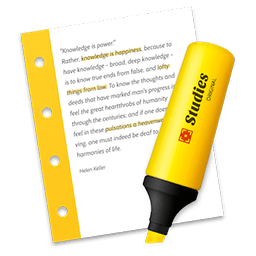- The Mental Case Mac Os Download
- The Mental Case Mac Os Catalina
- The Mental Case Mac Os X
- The Mental Case Mac Os 11
When you run Terminal in OS X 10.3 or 10.4, you’re working with something called the bash shell (in 10.2 and earlier, Terminal used the tcsh shell ). Both bash and tcsh feature something called tab completion—start typing a command or directory path, press Tab, and the shell will do its best to complete things for you. For instance, if I want to change to the system-level directory that holds the default Apache webserver pages, I could simply type cd /Li[Tab]/We[Tab]/Do[Tab]. Each time I hit Tab, the shell will complete the remainder of the word that I’ve typed, assuming it can find a match. In this example, the command line would read cd /Library/WebServer/Documents after my three presses of the Tab key.
If you have been using Mental Case on your Mac, iPhone or iPad, you can get a 30% discount by downloading Studies from this web site, and using the coupon MCUPGRADE (not available in Mac App Store). Once Studies is installed, you can migrate all of your data, including the study history and scheduling, when you first launch. This list of Macintosh models by case type contains all case designs used by Apple Inc. For its Macintosh computers. The list is sectioned by general case layout, but inside the sections the order is chronological. Models that used multiple names (like most Performas) are listed only once.Where available, the 'form factor' from Apple's datasheets has been used to determine the case designation.
- Mac OS 9 and Cooperative Multitasking Mac OS 9 is the latest generation of an operating system architecture that has been evolving since 1982. When the Macintosh was first released, the operating system was designed to support a single user using a single program on a single computer.
- If you have been using Mental Case on your Mac, iPhone or iPad, you can get a 30% discount by downloading Studies from this web site, and using the coupon MCUPGRADE (not available in Mac App Store). Once Studies is installed, you can migrate all of your data, including the study history and scheduling, when you first launch.
The one annoyance about this feature is that it is, by default, case sensitive. So I have to type the case of the letters as shown above, otherwise no matches will be found when I press the Tab key. Most typists, myself included, find that having to capitalize letters slows down one’s typing speed, and adds wear and tear (“excess finger presses”) to one’s hands. Thankfully, it’s easy to change the shell’s behavior to ignore capitalization.
If you’re running 10.3 or 10.4, just execute this command in Terminal:
This command is actually creating (or adding to) a file in your user’s home directory named .inputrc. The double greater-than signs route the output of the echo command into that file (by using two greater than signs, the new line will be appended to an existing file; if only one greater than sign were used, the entire file would be overwritten). And exactly what is the echo command echoing? It’s the command to set a bash variable to ignore letter case when calculating auto-completion.
The Mental Case Mac Os Download

After running the above command, open a new Terminal window and try typing cd /li[Tab]/we[Tab]/do[Tab]. Each time you press Tab, you’ll see that the lower case letters are replaced by their upper case versions, based on where the shell finds a match (i.e. /li becomes /Li, etc.).
If you’re running 10.2 or earlier (or using the tcsh shell in 10.3 or 10.4), then you’ll need this command:
The end result in either bash or tcsh is the same: capitalization is no longer required for auto-completion. Let your fingers fly at full speed, without the need to slow down for the occasional capital letter! If you ever wish to undo this change, it’s fairly simple. In bash, repeat the above command, but change On to Off. In tcsh, remove the = enhance bit of the command, leaving just set complete. Open a new Terminal window in either shell after running the revised commands, and you should find that case once again matters for auto-completion.
Back up your Mac
And your memories. A few simple steps can save you from losing your favorite photos and files.
The Mental Case Mac Os Catalina
Learn how to back up your MacMac service and repair

Learn about AppleCare+ and the Apple limited warranty coverage, start a service request for your Mac, and find out how to prepare your Mac for service.
Learn more about repairsGet AppleCare+ for Mac
With AppleCare+, you're covered. Get accidental damage coverage and 24/7 priority access to Apple experts.
Have a question?
Ask everyone. Our Apple Support Community can help you find answers.
Ask the Apple Support CommunityTell us how we can help
Answer a few questions and we'll help you find a solution.